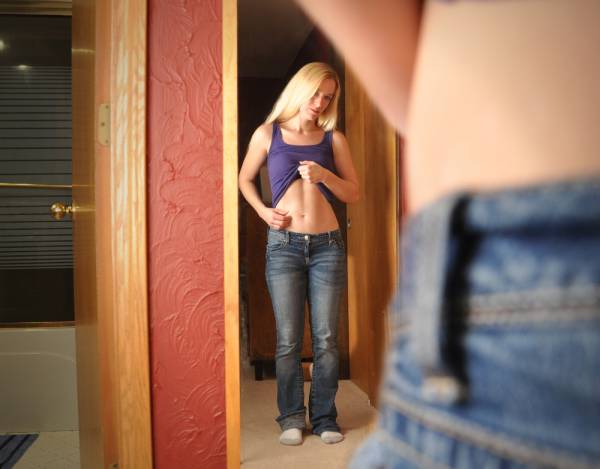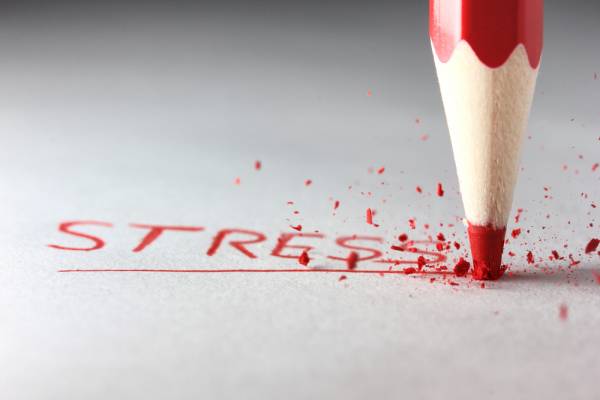It’s rare that practicing an extreme lifestyle of any kind doesn’t come with some negative repercussions. It is my experience that in sport and competition, from bodybuilding to powerlifting and everything in between, a certain level of intensity and extremity is needed in order to excel at the highest level.
The challenge for many athletes lies in being able to balance the intensity of an all-or-nothing attitude that is as much a blessing as a curse. The ability to excel and push through rigorous training and fatigue, as well as a restricted diet (whether for physique or performance) often lies within this attitude, but this mentality may also be a detriment after the dust settles and the goal of competition is no longer on the horizon, especially when it comes to dieting.
The Goal
This, both fortunately and unfortunately, is what often keeps a person motivated to stay the course and stick to the necessary dietary regimen when the going gets tough. Whether you are dieting to step on a bodybuilding stage or to step onto the platform at a certain weight, the imminent competition is normally enough to fuel a true competitor to adhere to a restricted diet.6
“The problem develops after the goal has been met, when dieters often feel their diet is ‘done’ and they deserve to reward themselves.”
For the majority of those adhering to a strict pre-competition diet for an extended period of time, whether “clean” or “flexibly,” feelings of restriction can lead to an unhealthy obsession with food that is non-characteristic of the person’s normal behavior. These feelings often begin during the dietary period, but for many can be held at bay due to the desire to succeed at their goal.
The problem develops after the goal has been met, when dieters often feel their diet is “done” and they deserve to reward themselves. This normally comes in the form of indulging in whatever they’ve been restricted from, whether it is food quantity or food sources.6
Psychological Repercussions
For many, the temporary loss of control post diet is exactly that, temporary and eventually controllable. But more frequently I see athletes who are unable to regain control after the dietary period, leading to potential disorders including binge eating, bulimia, and obsessive compulsive disorder. It’s important to note these disorders are officially recognized disorders by the American Psychiatric Association (APA) and are characterized by a set of criteria used for official diagnosis.3
Orthorexia is another potential problem, although not yet recognized as an official eating disorder by the APA. Orthorexia is a growing behavioral trend characterized by an excessive compulsion to avoid “unhealthy” foods.
“It’s important to note that although an isolated episode of bingeing and purging does not reflect an officially diagnosable ‘disorder’ it may reflect potential for the development of a disorder if proper measures aren’t taken.“

Binge Eating Disorder (BED)
Potentially the most common disorder incurred as a result of a restricted diet, BED cases range from mild to severe. BED is characterized by “recurring episodes of eating significantly more food in a short period of time than most people would eat under similar circumstances, with episodes marked by feelings of lack of control.” Often individuals with BED eat quickly despite feeling physically full. An episode results in feeling guilt, embarrassment, and disgust, and for these reasons often occurs in private.
“It is crucial post competition to practice moderation in order to avoid discomfort and feel the need to purge for physical and/or mental relief due to over-eating.”
In order to be diagnosed as a disorder, these habits must be accompanied by “marked distress” and take place once a week for a three-month period on average. In my experience, it is dieters who have been restricted in food sources for an extended period who are most at risk for developing this pattern of disordered eating.1
Bulimia is characterized by many of the same criteria as BED, although it is differentiated by the accompaniment of inappropriate compensatory behavior to avoid weight gain, such as purging. It’s important to note that although an isolated episode of bingeing and purging does not reflect an officially diagnosable “disorder,” it may reflect potential for the development of a disorder if proper measures aren’t taken.1
It is crucial post competition to practice moderation in order to avoid discomfort and feel the need to purge for physical and/or mental relief due to over-eating. It’s easy to “accidentally” overdo it in terms of food volume after a contest, risking the potential development of an unhealthy cycle and relationship with food.

Obsessive Compulsive Disorder (OCD)
Although the diagnostic line between the aforementioned eating disorders and obsessive compulsive disorder is blurry, as many forms of disordered eating coincide with specific compulsions, the focus with OCD is on recognizing if you are eliciting “repetitive behaviors or mental acts that are performed in response to an obsession or according to rules that must be applied rigidly.”
These acts – such as obsessively calculating calories, checking a label a certain number of times before consumption (beyond what’s necessary for information), etc. – are specified as being unconnected in a realistic way to what they are meant to control or are being performed to a clearly excessive extent. These activities can also become time-consuming and cause social distress.1
Orthorexia
Although not yet recognized as an official eating disorder by the APA, orthorexia – also known as the “clean eating disorder” – has been defined as a maniacal obsession for healthy food and is being unofficially “diagnosed” at increasing rates.
“This demonization of food causes anxiety and a need for avoidance beyond a sensible level of concern for health and nutrition.”
In my experience, those experiencing these types of obsessions often do so after a period of restricted dieting, specifically in which certain food groups have been avoided and essentially demonized in the eyes of the dieter. This demonization of food causes anxiety and a need for avoidance beyond a sensible level of concern for health and nutrition. This obsession is often counterproductive with the potential to lead to under-eating and malnutrition.3
Physical Repercussions
Aside from physical stress resulting from the psychological pressures and potential disordered eating that may occur in the aftermath of a restricted diet, the purely physical repercussions of the diet on an athlete can be traumatic, as well. This, in turn, can cause further emotional distress.
Over-eating or the rapid reintroduction of calories without the necessary precautions after an extended period of dieting can lead to excessive weight gain and potential metabolic damage. This may lead to further psychological distress with the possibility of developing depression and other psychological disorders such as body and/or muscle dysmorphic disorder.4 From this we can see that the psychological and physical repercussions are continually linked and can compound each other, either negatively or positively.

Precautions and Avoidance
Whether psychological distress presents itself before physical distress or vice versa, the negative cycle that may occur as a result of a restricted diet is obvious if you don’t take the proper measures to remain healthy and maintain balance both mentally and physically after a diet.
Pre-Diet Assessment: It’s important to assess your relationship with food and your emotional history before adopting a controlled diet. Take into account what types of diet would be best for you. Are you someone with an all-or-nothing attitude? An experienced coach can be a helpful asset in determining which method would be most suited for you mentally while also enabling you to reach your physical goals.
Post-Diet Planning: Have a plan in place to avoid the physical and mental rebound that can occur after a diet is “done.” Having a reverse diet in place, as well as keeping an ongoing goal, can help you minimize or even avoid any negative post-diet effects.5 For many, the post-diet window is just as challenging, if not more so, than the initial diet due to the lack of the original goal for continued motivation. The slow and steady increases needed to maintain a healthy metabolism can demand a high level of self control and discipline, so implement the aid of a coach during this period to hold you accountable and help you make the proper dietary changes.
Damage Control: If upon completing your initial diet you find you are struggling physically and/or mentally, don’t hesitate to enlist the help of a professional and make the necessary changes to regain balance and control. Remember, balance is always best!
Further Reading:
- Orthorexia: When “Clean Eating” Goes Too Far
- The 2 Days That Changed My Life
- How to Create a Healthy Relationship With Your Food
- New on Breaking Muscle Today
References:
1. American Psychiatric Association. 2013. Diagnostic and statistical manual of mental disorders. Washington, DC: Author
2. Bandura, Albert. 1989. Self-regulation of motivation and action through internal standards and goal systems. Hillsdale, NJ, England: Lawrence Erlbaum Associates, Inc.
3. Boncachea, B., Zamora, M., Sanchez, G., & Rial, R. Orthorexia nervosa: A new eating behavior disorder? Actas Esp Psiquiat. 2005; 33(1): 66-68.
4. Heilbronn LK, de Jonge L,, Frisard MI., et al. Effect of 6-Month Calorie Restriction on Biomarkers of Longevity, Metabolic Adaptation, and Oxidative Stress in Overweight Individuals: A Randomized Controlled Trial. JAMA. 2006;295(13):1539-1548. doi:10.1001/jama.295.13.1539.
5. Norton L., and Lee, S. Reverse Dieting. 2014
6. Pelchat, Marcia. Of human bondage: Food craving, obsession, compulsion, and addiction. Physiology & Behavior. 2002; 76 (3): 347-352. doi: 10.1016/S0031-9384(02)00757-6






